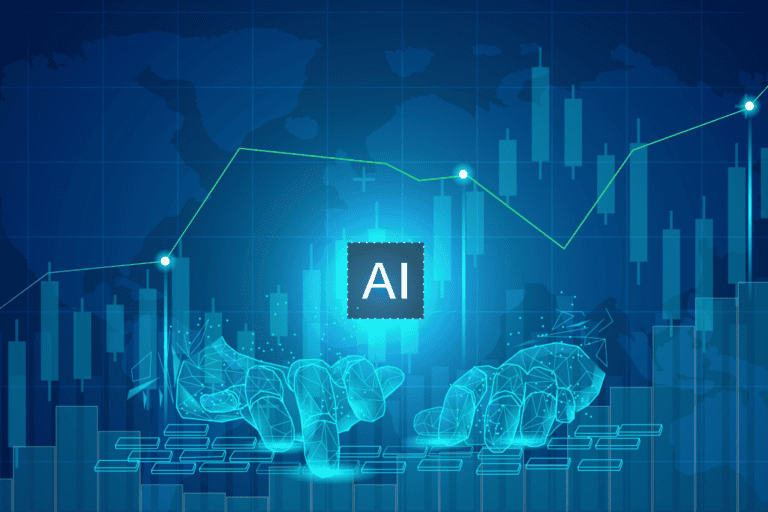The five most important tech trends of 2025 will all revolve around AI and GenAI, according to research conducted by Capgemini. For next year AI still seems to remain the main buzzword. However, there is growing clarity about the areas where AI can contribute and how this will be done.
Business leaders worldwide predict that AI and GenAI will make a greater impact in various technology fields by 2025. The technology has been mentioned almost without exception in every press release over the past year, and based on the predictions, it will be no different in 2025.
The use cases for AI will become clearer in 2025. AI is predicted to positively impact robotics, the cleantech agenda, and the supply chain.
AI in the field and logistics
Due to developments in robotics, AI applications will take a larger role outside of the laptop and offices. It will become important in manufacturing, agriculture and logistics, for example. Not to say AI does not exist in these industries at the moment, but by 2025 advances in natural language processing and machine vision will improve their capabilities. As a result, robots will work more independently and be better suited to more complex tasks.
Sally Epstein, CIO at Cambridge Consultants, provides more insight into the added value of LLMs for robotics. “LLMs allow robots to train from different data streams without the need for retraining. Robots thus become more flexible and can adapt to new situations more quickly, without requiring a lot of human work hours for training the LLMs.”
The pressure on the energy industry
The deployment of AI is putting heavy pressure on the energy industry. While many companies have a clear agenda around sustainability, AI is causing changes in what can be achieved and at what time. More and more companies will follow the lead of the big hyperscalers and turn to nuclear power.
The shift to Small Modular Reactors (SMRs) and Advanced Modular Reactors is the most important. SMRs reduce the size of energy supplies and give companies a more private supply. It is notable, however, that Capgemini designates SMRs as a key domain for 2025 because the company states in its figures that in the fall of 2024, only seven percent of executives worldwide still designated this energy supply as a top three sustainability technology for 2025.
The second form of reactors provides solutions for more sustainable energy supplies and already solves part of the problem that nuclear reactors themselves cause: waste. Advanced Modular Reactors use new types of fuels, achieving higher temperatures.
Also read: Energy hungry data centers in AI era puts nuclear power back on agenda
Responding to the future with AI
Supply chains face several challenges in 2025. Geopolitical tensions could disrupt supply chains if, for example, they determine that trade is no longer allowed with certain countries. Furthermore, climate challenges will not leave this industry untouched either. In addition, new European regulations are coming next year that will affect the supply chain. On the latter aspect, Emmanuelle Bischoffe-Cluzel, VP of sustainability and global automotive at Capgemini, elaborates, “New regulations, such as the European Union’s Digital Product Passport, will require companies to track and disclose the carbon footprint of their products, encouraging them to adopt more sustainable practices.”
AI will play an important factor in addressing these challenges. These technologies enable companies to improve their predictive capabilities and navigate an ever-changing ecosystem. According to the company, the time is now ripe for this as AI has become sufficiently mature and reliable.
Building further on the foundations of 2024
In the tech trends, Capgemini further highlights the impact on cybersecurity and discusses the movement of copilots being replaced by reasoning AI Agents. Those trends were clearly set in motion in 2024.
AI Agents autonomously perform delineated tasks in companies. These “new colleagues” were brought into many services a few months ago. Thus, a clearly deployable elaboration of AI for business processes surfaced. That technology will mature next year.
We also find no striking claims in the cybersecurity world in Capgemini’s predictions. AI creates new defenses and new threats. That was already true in 2024; figures from the Capgemini Research Institute show that 97 percent of organizations will have experienced security problems due to the use of GenAI by 2024. Mainly, it seems that even more expertise is needed in how to address threats arising from AI. We recently discussed the trends and tips described with a panel of experts, which we published in three different articles.
